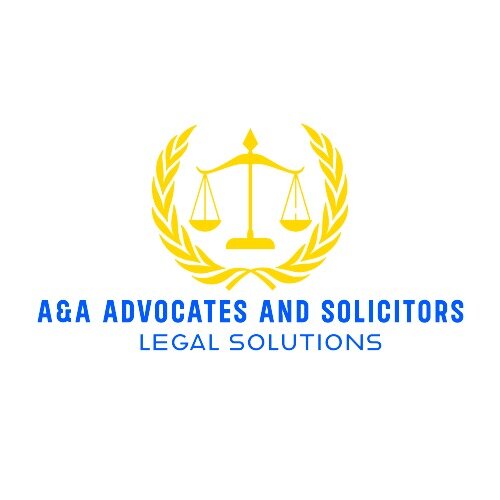Best E-commerce & Internet Law Lawyers in Accra
Share your needs with us, get contacted by law firms.
Free. Takes 2 min.
List of the best lawyers in Accra, Ghana
About E-commerce & Internet Law in Accra, Ghana
E-commerce and Internet law in Accra, Ghana, is a rapidly evolving field that encompasses all legal issues related to online business activities and digital transactions. Given the growth of internet penetration and digital marketplaces, this branch of law addresses various aspects such as online contracts, digital privacy, data protection, intellectual property, and electronic payment systems. The legal framework aims to foster innovation and competition while ensuring consumer protection and compliance with international standards.
Why You May Need a Lawyer
Engaging with e-commerce and Internet law may necessitate legal assistance for numerous reasons, including:
- Setting up an online business and needing to understand the legal requirements.
- Drafting and reviewing terms and conditions or privacy policies for your website.
- Navigating complex issues such as data breaches or cybersecurity incidents.
- Resolving disputes with clients or other businesses over online transactions or intellectual property rights.
- Ensuring compliance with local laws and international regulations concerning e-commerce operations.
- Dealing with digital marketing laws, including email communication and online advertising.
- Protecting consumer rights in the digital marketplace.
Local Laws Overview
In Accra, Ghana, some key legal considerations for e-commerce and Internet activity include:
- The Electronic Transactions Act, 2008 (Act 772) plays a pivotal role by establishing guidelines for electronic transactions, digital signatures, and contracts.
- The Data Protection Act, 2012 (Act 843) outlines the principles of data privacy and mandates businesses to protect the personal data of consumers.
- The Payment Systems and Services Act, 2019 regulates electronic financial transactions and aims to ensure that electronic payment systems are secure and efficient.
- Intellectual property laws, such as the Copyright Act and the Trade Marks Act, are important for protecting digital content and branding elements used online.
Frequently Asked Questions
What legal requirements must I meet to start an e-commerce business in Ghana?
You'll need to incorporate your business, comply with the Electronic Transactions Act, create robust privacy policies, and ensure a secure payment system.
How does the law protect consumer rights in e-commerce?
The Electronic Transactions Act provides a framework for consumer protection, requiring merchants to provide clear information about their products and services.
What are the penalties for violating data protection laws?
Non-compliance with data protection regulations can lead to fines, legal action, and damage to business reputation.
Is it necessary to have a digital signature for online contracts?
Digital signatures are highly recommended to authenticate the identity of parties involved and to legitimize online contracts under the Electronic Transactions Act.
What steps should I take if I experience a data breach?
Immediately notify affected parties, contain the breach, and consult with legal professionals to discuss liability and compliance with notification standards.
Can I advertise freely online?
Yes, but advertising must comply with laws against false advertising and respect privacy regulations regarding unsolicited communications.
How are intellectual property rights protected online?
Through intellectual property laws that cover copyrights, trademarks, and patents, allowing you to claim ownership and pursue legal action against infringement.
What are the key legal considerations for cross-border e-commerce?
Consider international trade regulations, local tax implications, and compliance with both local and foreign consumer protection laws.
Are there specific regulations for electronic payments?
The Payment Systems and Services Act regulates electronic transactions to ensure secure, efficient payment processes are used by e-commerce platforms.
How can I ensure my e-commerce platform is legally compliant?
Engage a legal expert to audit your systems and processes for compliance with relevant laws, and keep updated with any legislative changes.
Additional Resources
For further assistance, consider reaching out to the following resources:
- Ministry of Communications and Digitalisation
- Ghana Data Protection Commission
- Ghana Chamber of Telecommunications
- E-commerce Association of Ghana
Next Steps
If you require legal assistance in e-commerce and Internet law, consider the following steps:
- Consult with a specialized lawyer or a law firm experienced in e-commerce issues.
- Attend workshops and seminars from relevant industry bodies to stay informed.
- Consider joining professional organizations to network and learn best practices.
By proactively seeking legal guidance, you can protect your business interests and navigate the intricacies of e-commerce law effectively.
Lawzana helps you find the best lawyers and law firms in Accra through a curated and pre-screened list of qualified legal professionals. Our platform offers rankings and detailed profiles of attorneys and law firms, allowing you to compare based on practice areas, including E-commerce & Internet Law, experience, and client feedback.
Each profile includes a description of the firm's areas of practice, client reviews, team members and partners, year of establishment, spoken languages, office locations, contact information, social media presence, and any published articles or resources. Most firms on our platform speak English and are experienced in both local and international legal matters.
Get a quote from top-rated law firms in Accra, Ghana — quickly, securely, and without unnecessary hassle.
Disclaimer:
The information provided on this page is for general informational purposes only and does not constitute legal advice. While we strive to ensure the accuracy and relevance of the content, legal information may change over time, and interpretations of the law can vary. You should always consult with a qualified legal professional for advice specific to your situation.
We disclaim all liability for actions taken or not taken based on the content of this page. If you believe any information is incorrect or outdated, please contact us, and we will review and update it where appropriate.









